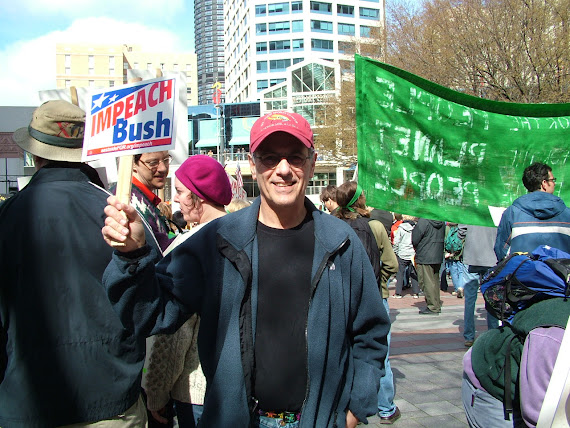When conducted in this country, wiretaps by federal officials are governed by Title III of the Omnibus Crime Control and Safe Streets Act of 1968, see 18 U.S.C. §§ 2510-2520. Title III does not apply outside the United States. See Stowe v. Devoy, 588 F.2d 336, 341 (2d Cir.1978), cert. denied, 442 U.S. 931, 99 S.Ct. 2862, 61 L.Ed.2d 299 (1979); United States v. Cotroni, 527 F.2d 708, 711 (2d Cir.1975), cert. denied, 426 U.S. 906, 96 S.Ct. 2226, 48 L.Ed.2d 830 (1976). Likewise neither the Fourth Amendment nor the exclusionary rule generally applies to searches conducted in foreign countries by foreign officials. United States v. Maher, 645 F.2d 780, 782 (9th Cir.1981) (Generally, "[n]either our Fourth Amendment nor the judicially created exclusionary rule applies to acts of foreign officials."); see also United States v. Staino, 690 F.Supp. 406, 408-09 (E.D.Pa.1988).
Extraterritorial searches and extraterritorial wiretap evidence is generally admissible in United States courts when foreign officials, acting on their own to enforce foreign law, properly follow their own law in obtaining the evidence. See e.g., United States v. Cotroni, 527 F.2d 708, 711-712 (2d Cir.1975), cert. denied, 426 U.S. 906, 96 S.Ct. 2226, 48 L.Ed.2d 830 (1976), This is the case even where the subject of the foreign search is an American citizen. United States v. Maturo, 982 F.2d 57, 60 (2nd Cir.1992); United States v. Rose, 570 F.2d 1358, 1361 (9th Cir.1978); see also United States v. Morrow, 537 F.2d 120, 139 (5th Cir.1976), cert. denied, 430 U.S. 956, 97 S.Ct. 1602, 51 L.Ed.2d 806 (1977). [1] However two exceptions to this general rule have developed: (1) where the involvement of the United States officials is so extensive in the search that the United States government and the foreign government are said to be involved in a "joint venture"; and, (2) where the action taken by the foreign officials shocks the judicial conscience. United States v. Peterson, 812 F.2d 486, 490 (9th Cir.1987); United States v. Staino, 690 F.Supp. at 409 & n. 8.
Prior to the decisions of the Supreme Court in Mapp v. Ohio, 367 U.S. 643, 81 S.Ct. 1684, 6 L.Ed.2d 1081, 84 A.L.R.2d 933 (1961) and Elkins v. United States, 364 U.S. 206, 80 S.Ct. 1437, 4 L.Ed.2d 1669 (1960), where the Supreme Court held that the Fourth Amendment was incorporated in the Fourteenth Amendment and therefore applicable to State agencies, it was pertinent to inquire whether Federal officials so substantially participated in a raid by State officials so as to convert the raid into a joint venture between State and Federal officials and therefore subject to the provisions of the Fourth Amendment.[2]
The essentials of that inquiry are equally pertinent in determining whether Federal officials so substantially participated in a raid by foreign officials as to convert that raid into a “joint venture” between the United States and the foreign government and therefore subject to the provisions and sanctions of the Fourth Amendment. Stonehill v. United States, 405 F.2d at 743. If the court finds that United States agents’ participation in a foreign criminal investigation is so substantial that the action is a “joint venture” between United States and foreign officials, the law of the foreign country must be consulted at the outset as part of the determination whether or not the search in question was reasonable. United States v. Peterson, 812 F.2d 486, 490 (9th Cir.1987).[3]
In analyzing the “joint venture” exception, it is important to determine which country’s law enforcement agency initiated and controlled the wiretap. See United States v. LaChapelle, 869 F.2d 488, 489 (9th Cir.1989). Merely supplying a tip to a foreign law enforcement agency however, which then conducts an investigation and search leading to an American prosecution, does not amount to a "joint venture". See, e.g., United States v. Hawkins, 661 F.2d 436, 456 (5th Cir.1981); United States v. Heller, 625 F.2d 594, 600 (5th Cir.1980). Nor does the act of a United States agent serving as a language interpreter for foreign authorities convert the search into a joint venture. Birdsell v. United States, 346 F.2d 775, 782 (5th Cir.1965), cert. denied, 382 U.S. 963, 86 S.Ct. 449, 15 L.Ed.2d 366 (1965). However, when a federal agent participates in a “joint endeavor” the effect is the same as though he had engaged in the undertaking as one exclusively his own. Corngold v. United States, 367 F.2d 1 (9th Cir.1966).
In Stonehill v. United States, 405 F.2d 738, 743 (9th Cir.1968), cert. denied, 395 U.S. 960, 89 S.Ct. 2102, 23 L.Ed.2d 747 (1969) the Court identified the following 6 factors as relevant to the “joint venture” analysis:
1) Did United States agents instigate and plan the questioned foreign law enforcement action or was it instigated and planned by foreign law enforcement officials before United State agents became involve?
2) Was the purpose of the questioned foreign law enforcement action to obtain evidence for a foreign prosecution or was it to obtain evidence for a United States prosecution?
3) Did United States agents activities commenced before or after the termination of the questioned foreign law enforcement action?
4) Were United States agents given permission to access the information after the questioned foreign law enforcement action was completed or were the United States agents given access to information which might be of interest to them while the questioned foreign law enforcement action was ongoing?
5) Is there evidence that United States agents were attempting to short circuit the Fourth Amendment rights of United States taxpayers?
6) Did United States agents make information available to foreign law enforcement officials with the intent it be used to undertake the questioned foreign law enforcement action?
[1] An alien may seek the shelter of the Fourth Amendment only to the extent that he has developed substantial connections with this country by voluntarily assuming the societal obligations imposed upon "the people of the United States." Unites States v. Guitterez, 983 F.Supp. 905, 910 (N.D.Cal.,1998); but see United States v. Verdugo-Urquidez, 494 U.S. 259, 274-275, 110 S.Ct. 1056, 1066 (1990).
[2] Under the “silver platter” doctrine, evidence seized by state officers in violation of Fourth Amendment standards was, until the decision of Elkins v. United States, 364 U.S. 206, 80 S.Ct. 1437, 4 L.Ed.2d Ed.2d 1669 (1960), admissible in a federal trial court unless the purpose of the search was to obtain evidence of a federal offense (Gambino v. United States, 275 U.S. 310, 48 S.Ct. 137, 72 L.Ed. 293, 52 A.L.R. 1381 (1927)); or unless federal officers participated in the search. Lustig v. United States, 338 U.S. 74, 69 S.Ct. 1372, 93 L.Ed. 1819 (1949); Byars v. United States, 273 U.S. 28, 47 S.Ct. 248, 71 L.Ed. 520 (1927).
[3] Foreign law, though formerly treated as an issue of fact, is now recognized as an issue of law, to be established by any relevant source, including testimony. Fed.R.Crim.P. 26.1; Fed.R.Civ.P. 44.1. Although foreign law governs whether the search was reasonable, US law governs whether illegally obtained evidence should be excluded. The essence of the inquiry is whether exclusion serves the rationale of deterring federal officers from unlawful conduct. At this point, the good faith exception to the exclusionary rule becomes part of the analysis. The determination whether federal officers will be deterred by the exclusion of evidence in a federal courtroom is a decision that necessarily implicates federal interests, and federal law determines whether the exclusionary remedy should be invoked. Peterson, 812 F.2d at 490-92.
Subscribe to:
Post Comments (Atom)


No comments:
Post a Comment